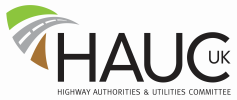Pre enabling works ahead of time enables us to see the potential risks we have on works and how we can minimise the risks to those who need additional help. This section is for surveyors, enabling operatives and any staff who are able to get to sites to complete assessments of the road network ahead of works to look at bus routes, diversions and potential areas where we would need to provide alternative walkways. This guide shows you what to consider and how to communicate with members of the public to ascertain additional requirements.
Our Safety Code states:
"You must consider the needs of children, older people and disabled people, with particular regard for visually impaired people", and you must provide: "a safe route suitable for people using wheelchairs, mobility scooters, prams or pushchairs".
Even small changes cause problems. If we must close a footway as part of our planning works, then the surface we provide must be adequate for the safety of visually impaired road users.
For visually impaired people, signs explaining alternative access may not be suitable this means we must be prepared to support and provide guidance through our sites to help them to understand how we’ve changed or have plans to change the physical environment.
You must make sure that:
- Footway and carriageways are in a good state for navigating through with a cane.
- Walkways are set up as per legislation to ensure safe passage.
- Ramps that will be in use are stable and secure, with walkways wide enough to allow full swing for negotiating sites safely.
- Diversions do not put the public in danger – do not divert through underpasses or dimly lit areas.
- Changes to access and impacts on transport (Bus Stops etc), are known with people on site able to explain those changes.
Talk about the routes used by visually impaired people. Make a note of those routes. Don’t make assumptions, ask questions and log any details about access and travel.
Make sure you account for changes to transport routes. Remember, those routes aren’t set by us, but this information is key to ensuring accessibility to vital services and ensuring safe Street and Road works.
Early communication is vital, but bear in mind that visually impaired people would likely prefer notifications in a different format. Using Braille where possible will likely improve a visually impaired road users experience?
For further information see:
- Temporary Traffic Management Handbook (tfl.gov.uk)
- Accessible bus stop design guidance (tfl.gov.uk)
- 12-2022-haucbulletin-footwayclosurev1.0.pdf (hauc-uk.org.uk)
- 17-2022-hauc_ramping_up.pdf (hauc-uk.org.uk)
- Safer Provisions for Pedestrians at Roadworks_A Risk Prioritisation Framework_FINAL (tfl.gov.uk)
